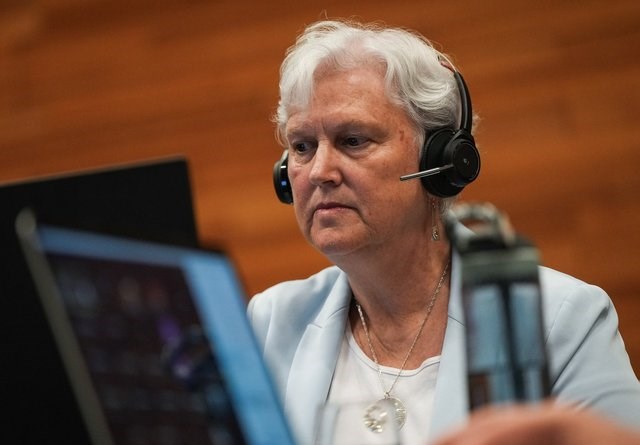British Columbia's child welfare system is either in a state of crisis or close to it with understaffing and unmanageable workloads, the province's representative for children said.
A report released by Jennifer Charlesworth Tuesday said the environment for social workers at the Ministry of Children and Family Development is unhealthy for staff, characterized by undue stress, burnout and fear, and there's no time for the government to wait to address the "critical circumstances."
The latest investigation comes days after her report on the torture death of an 11-year-old boy who died at the hands of relatives after not being checked on by a social worker for seven months.
Charlesworth said the boy's death happened within the context of a child welfare office that was not fully staffed, had unstable and changing local leadership, and had an extended period of social worker medical leave with no backfill.
Her office conducted a survey of 700 social workers and managers and more than 80 per cent said they are unable to properly do their jobs because their caseloads are too high.
She said many reported not having enough supports or resources and not having places to turn to refer families in need.
"If you can put yourself in the workers' position here, you're feeling you can't fulfil your responsibility, and you can't even refer out to fulfil your responsibility. That's going to add to a tremendous amount of feeling of stress and overwhelm," she said.
Alan Markwart, the author of the report, told a news conference Tuesday that data from 2021 showed sa���ʴ�ý needed "several hundred" more social workers in order to meet their work requirements 85 per cent of the time. The government has stopped collecting that data, he said.
"The ministry used to also track offices that were staffed at 50 per cent or less, but they stopped tracking that in 2022," he said.
"Both of those, in our view, are crucial metrics that … they should be gathering, but they don't."
Children and Family Development Minister Grace Lore said at a news conference after the report was released that the number of staff doing front-line work has increased 17 per cent "in recent years" and 200 people have been added since September.
She said the ministry has created a mentorship program and has a remote team to help with administrative tasks so social workers can focus on families.
Lore said she agrees with front-line workers who say they need more services to support families, adding that the ministry needs a "fundamental rethink" of its services.
"Because while recruiting, and retaining and supporting staff is and has to stay a priority, so is making sure that they as social workers, as front-line staff, have access to the services and supports that families need," she said.
When asked about the decision to abandon the government's workload analysis tool in 2021, Lore said the ministry is developing a "workforce strategy."
She said it is important to think about not just the number of vacancies, but "how those roles exist."
"What is really important is the changing complexity of this work. That we know the depth and breadth of needs of families has changed over recent years. We know that what they need from us has changed and so that workforce strategy is about identifying and meeting that need," she said.
The report credits the ministry with taking action to improve working conditions and compliance with the requirement for in-person visits following the boy's death, but says more work must be done to support current staff and recruit and retain more social workers.
The office says the staffing issues are not confined to just rural and remote communities.
"Currently it's in every area of the province. It's the Okanagan, it's Victoria, it's the Lower Mainland. There were 46 offices in July of 2022 that were staffed at 50 per cent or less, and they were throughout the province in urban and rural areas. Of course it's more acute in rural areas " Markwart said.
The BC General Employees' Union said in a statement that the concerns in the report are not new, but require "urgent attention"
"Both our union and (the representative) have been sounding the alarm for many years about the impact of heavy workloads, challenges with staff recruitment and retention, the increasing complexity of child protection work, and chronic social worker staffing shortages on our province's child welfare system," the statement says.
Charlesworth said she meets frequently with government officials, including Lore, and while her findings "may sting a little," they won't be a surprise.
She said she's hopeful the government will follow through on her recommendation, adding there are a number of things already being worked on to address the issues she has raised.
"Social workers in this province have incredibly difficult jobs and to see how understaffed and overworked they are is truly disturbing,” Charlesworth said in a statement accompanying her report.
“We have known about chronic understaffing at this ministry for decades, yet successive governments have not addressed these challenges. Now, here we are yet again, reeling from the death of a child that was entirely preventable."
This report by The Canadian Press was first published July 23, 2024.
Ashley Joannou, The Canadian Press



